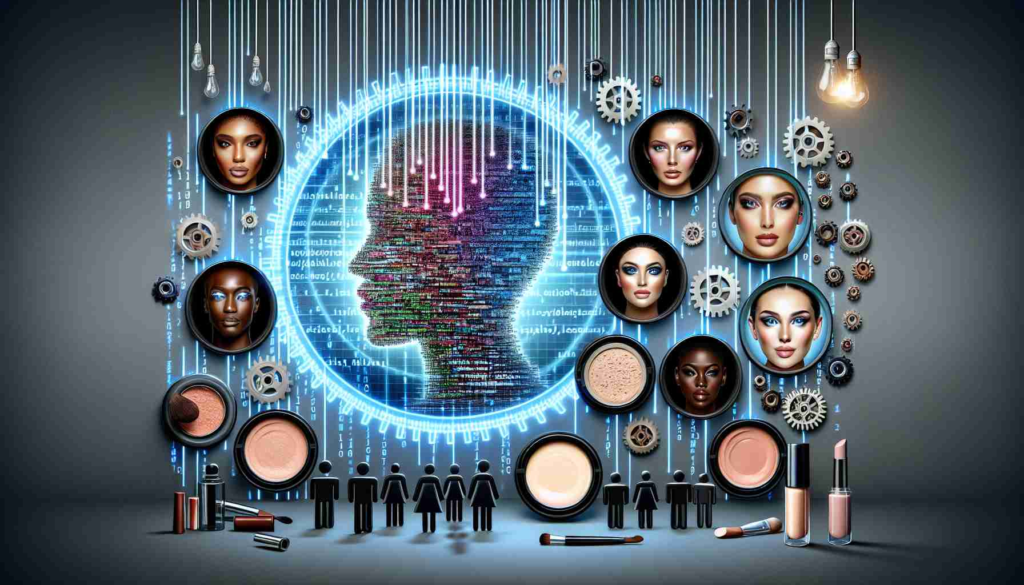The global beauty industry is being transformed with the integration of artificial intelligence (AI) technology, creating ways to personalize beauty products for each individual customer.
In South Korea’s famous K-beauty industry, companies are using AI to develop innovative products to meet the diverse needs of consumers. One company at the forefront is Amorepacific, which has introduced an AI-powered counseling and cosmetics blending room that has become popular among customers.
In Amorepacific’s AI-driven facilities, robotic systems mix products specifically tailored for facial skin and use cutting-edge technology to recommend the most suitable lipstick color based on each customer’s unique skin characteristics. This personalized approach has revolutionized the traditional way cosmetics are selected.
Customer feedback reflects the effectiveness of AI in beauty customization. Customers like Kwon Hyo-jin appreciate AI’s in-depth analysis of their skin condition rather than just picking a generic shade, leading to a more informed decision-making process. Seeing AI-recommended cosmetics first-hand has improved the overall customer experience.
Amorepacific is one of many beauty companies in Korea and abroad, including L’Oreal and Sephora, that are using AI to improve sales performance. Deep learning algorithms and machine learning can help developers speed up the product development process and meet the growing demand for new beauty solutions.
The use of AI in the beauty industry is expected to boom over the next few years, with market analysts predicting a significant increase in revenue generated from AI-enabled beauty products and services. This technological advancement will not only accelerate product innovation, but also herald a new era of personalized beauty solutions tailored to individual preferences.
Revolutionizing the Beauty Industry with AI Technology: Breaking New Horizons
As the beauty industry continues to evolve, the integration of artificial intelligence (AI) technologies is changing the landscape for personalized cosmetics globally. In our previous article, we highlighted the pioneering role of companies such as South Korea’s AmorePacific, but there are additional insights and considerations that shed light on the transformative power of AI in the beauty industry.
Key questions and insights:
– How can AI technology accurately analyze skin characteristics and recommend customized products?
– How will AI-powered beauty solutions impact the traditional retail experience?
– How do beauty brands ensure data privacy and security in AI-powered consultations?
Challenges and controversies:
One of the main challenges associated with AI in the beauty industry is the ethical implications of data collection and analysis. Ensuring transparency about how customer data is utilized and protected remains a major concern. Additionally, relying on AI for product recommendations raises questions about the impact it will have on human creativity and the traditional role of makeup artists.
Pros and Cons:
advantage:
– Personalization: AI allows for precise customization of beauty products based on individual skin characteristics, resulting in increased customer satisfaction.
– Efficiency: AI accelerates the product development process, enabling beauty brands to respond quickly to consumer demand for innovative solutions.
Demerit:
– Privacy concerns: Collecting and using personal information for AI-enabled consulting can raise data privacy issues.
– The human element: The shift to AI-driven recommendations may diminish the human touch and expertise that traditional beauty consultants provide.
The expansion of AI technology in the beauty industry signals a transition to a more personalized, technologically advanced future. As companies leverage AI to innovate their product offerings and customer experiences, it is essential that they navigate the challenges while maximizing the benefits of this transformative technology.
For more information on the intersection of beauty and AI, visit L’Oréal and Sephora to see how industry leaders are using AI to shape the future of beauty.

